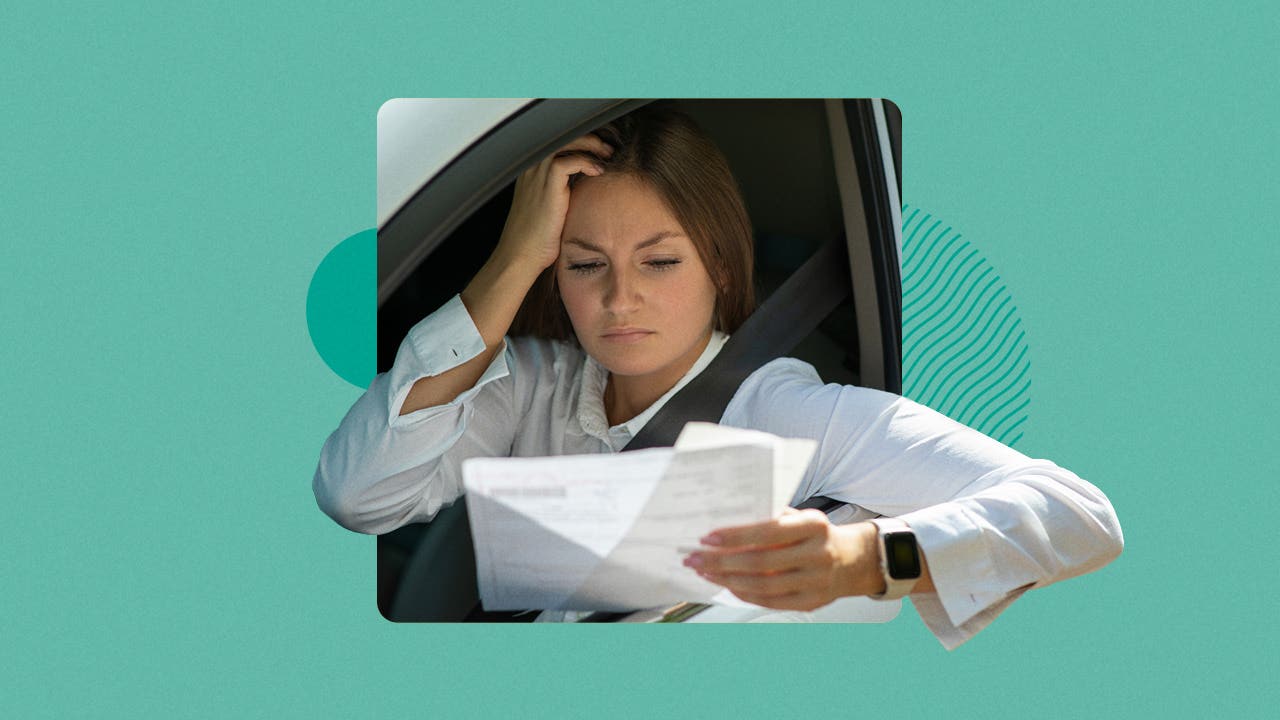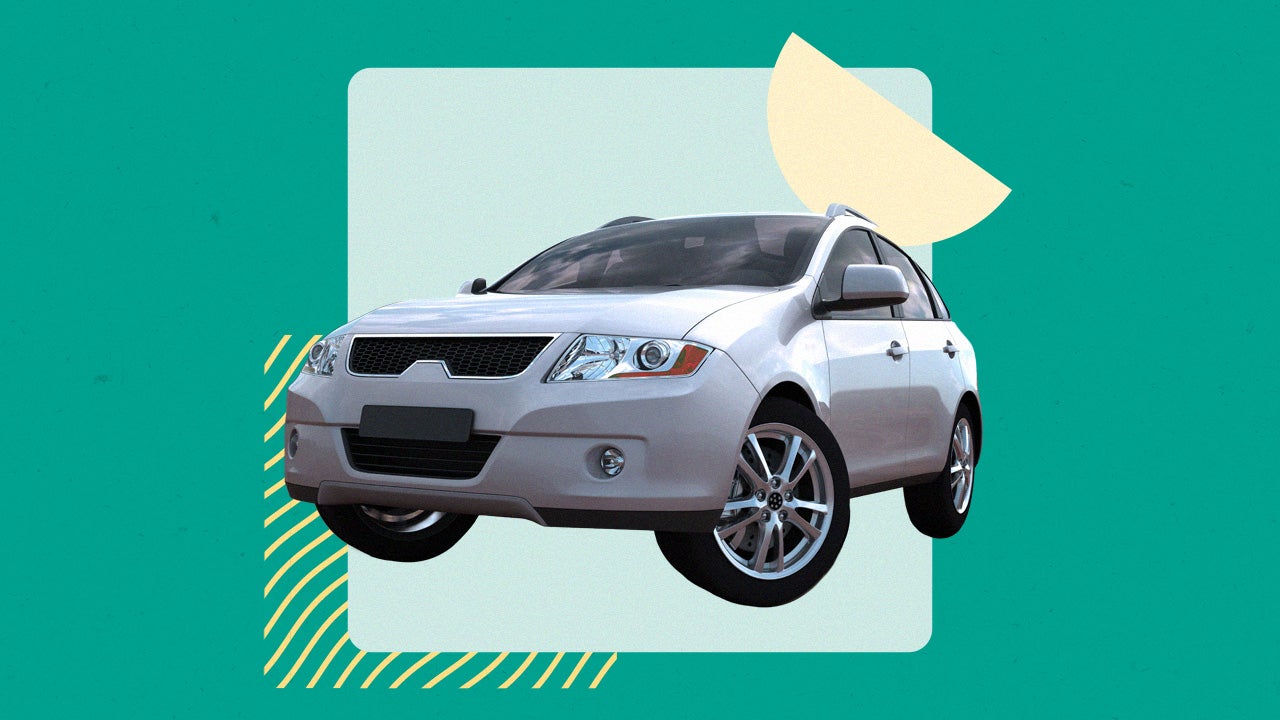What is an upside-down car loan and how do I get out of it?

Key takeaways
- An upside-down auto loan occurs when you owe more than the vehicle is worth.
- Being upside-down on your car loan can lead to a challenging financial situation if your vehicle is totaled or you want to trade in your car.
- You can get right-side up on your auto loan by making extra payments or refinancing your vehicle loan.
An upside-down car loan can make selling your vehicle — and qualifying for future financing — more challenging. If you’re in this scenario, don’t be discouraged. You can take steps to minimize your negative equity and avoid becoming upside-down on an auto loan in the future.
What is an upside-down car loan?
A car loan becomes upside-down when you owe more on the loan than the vehicle is worth. For example, your loan would be considered upside-down if your car’s value is $12,000, but your loan balance is $15,000. In this scenario, you have a negative equity of $3,000.
For many, being upside-down is not always an issue. If you do not plan on selling your car, you can continue to make payments on your loan until it is paid off. Having an upside-down car loan will not change how you interact with your lender. It will only have an effect if you need to switch vehicles before your loan is completely paid off.
Why negative equity is a problem
If you are upside-down on your car loan, it will be more difficult to trade in at a dealership or sell your vehicle privately because you will need to pay the negative equity out-of-pocket. Although you can technically roll any negative equity into a new loan, this increases your chances of being upside-down again.
Negative equity can also be a problem if your vehicle is totaled. Following an accident, your insurance agency will pay out the value of your vehicle. If you have an upside-down loan, however, you will still owe that amount, along with any remaining negative equity.
No, but if you trade your vehicle in, the dealership will pay off your existing loan and roll the negative equity into the new auto loan. Doing so prevents you from paying the difference upfront.
What causes a car loan to be upside-down?
There are a few common ways people become upside-down on their auto loans:
-
Financing a car with no money down. Through car depreciation, a vehicle can lose up to 20 percent of its value in the first year of ownership. It will not take long for depreciation to overtake your equity if you don’t have a down payment.
-
Picking a long repayment term. Some lenders offer new car financing for up to 84 months. This keeps monthly payments low, but your car will likely depreciate beyond your original purchase amount by the end of a long loan term.
-
Buying a luxury model. Luxury cars tend to depreciate much more quickly than their counterparts. Combined with their high cost, you are more likely to have negative equity if you choose to buy instead of lease.
The more you put down on your car, the less likely you are to fall behind on your loan. You can pay your loan off faster before your car has a chance to depreciate beyond your debt.
How to find out if your car loan is upside-down
Even though having an upside-down car loan is not always bad, it is useful to know where your loan stands.
-
Request a payoff quote. A payoff quote is a document that shows exactly how much you currently owe on your vehicle, including interest charges.
-
Calculate how much your car is worth. Kelley Blue Book, Edmunds and other online car-buying sites can show you an estimate of what your vehicle is worth. You can also request trade-in quotes from dealers in your area to gauge possible sale prices.
-
Do the math. Subtract the remaining loan balance from your car’s value to determine your equity. If the number is negative, you have an upside-down loan.
How to get out of an upside-down car loan
It is easier to sell or trade in your vehicle if you do not have an upside-down car loan, but you have a few options if you already are.
-
Make extra payments. An extra payment each month will help you build equity faster, especially if you tell your lender to put the payments toward the loan’s principal.
-
Refinance your loan. Refinancing to a shorter term or qualifying for a low auto loan refinance rate will ensure that more of your payments go toward your principal, which will help you catch up on your equity quicker.
-
Keep your vehicle. Continue making payments until your car loan is fully paid off. Any remaining equity at the end of your loan can be converted into cash through a sale or trade-in.
Gap insurance covers what your insurance company pays for the vehicle and what you owe, which helps reduce your bill if your car is totaled.
7 tips to avoid going upside-down on a future car loan
If you plan to purchase a vehicle soon, there are ways to reduce your risk of becoming upside-down.
-
Determine what you can afford. Try to follow the 20/4/10 rule, which recommends that you budget for a 20 percent down payment with a four-year repayment term and 10 percent transportation costs.
-
Make a down payment. A down payment — typically 20 percent or more of the total car cost — can prevent owing more than the car is worth. Try to take advantage of cash-back manufacturer rebates and trade-in value from your previous car.
-
Avoid dealer add-ons. Be careful of car loan add-ons that are funded through your car loan. These can dramatically increase your cost and potentially increase your risk of becoming upside-down.
-
Shop around for the best loan. Instead of defaulting to the dealership loan you are offered, shop around for the lowest auto loan rate. This can help ensure you dedicate the most funds to the principal rather than the interest.
-
Pay the taxes and fees outright. Rolling taxes and fees into your loan automatically puts you upside-down since you’re financing more than the car is worth. Instead, cover any additional costs with your down payment.
-
Select an appropriate loan term. Choose the shortest loan term that you can afford. This will also help reduce the total loan cost.
-
Choose a vehicle with slow depreciation. Some cars hold their value better than others and have a slower depreciation. Sources like Kelley Blue Book and Edmunds calculate expected depreciation to help with your research.
Bottom line
Being upside down simply means you owe more than your car is worth. Unfortunately for most, it is nearly inevitable at the beginning of your loan term, but there are ways to get right-side up again.
There are also ways to minimize the time you spend upside down. Try to make extra payments, increase your down payment amount and refinance if possible. When shopping, use an auto loan calculator to estimate how soon you will cross from negative to positive equity so you can become right-side up that much sooner.
Why we ask for feedback Your feedback helps us improve our content and services. It takes less than a minute to complete.
Your responses are anonymous and will only be used for improving our website.
You may also like

How to remove a cosigner from a car loan

How to refinance your car loan





